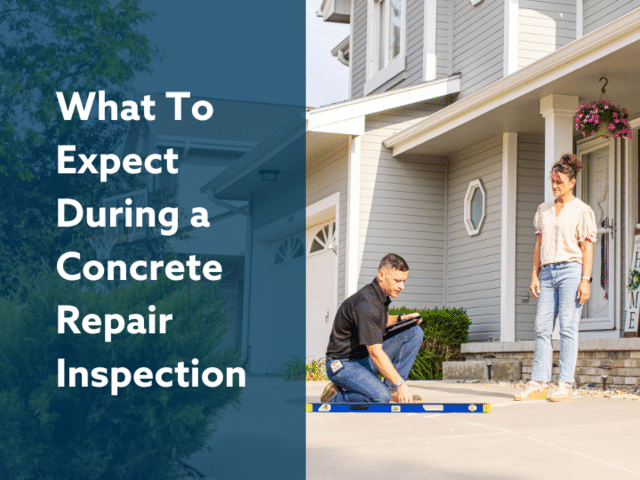Expansive Soils & Your Foundation Walls
 Backfill soil behaves differently than the unexcavated, "virgin soils" farther away from the foundation. Backfill soil typically absorbs more water and expands more, exerting pressure against the foundation.
Backfill soil behaves differently than the unexcavated, "virgin soils" farther away from the foundation. Backfill soil typically absorbs more water and expands more, exerting pressure against the foundation.
The soils around your foundation can put a lot of pressure on your foundation walls. The amount of pressure caused by soil will vary depending on three factors:
- The types of soil around the home
- How much moisture is in the soil
- How deep underground the foundation is built
When the pressure from outside the basement walls is greater than the wall can handle, the wall will begin to crack, bow, and push inward. If you think your foundation is exhibiting any of these signs, it's best to call a foundation expert for an inspection.
Understanding Different Types of Soil: Backfilled Soils & Virgin Foundation Soils

When your home was being built, contractors had to dig a big hole in the ground. This was created to make space for your basement. Some of the earth they dug up may have laid untouched for hundreds of years or more.
As foundation walls and house framing were completed, the empty space around the foundation needed to be filled. Contractors typically backfill foundation walls using some of the excavated soil that was removed to make room for the basement.
The excavation process breaks up and loosens the soil. Because of this, backfill soils will always be more permeable, or water-absorbent than the hard-packed earth beyond.
When it rains, the water will collect in the backfilled soils, exerting hydrostatic pressure (discussed below) against foundation walls. This is known as the "clay bowl effect."
What causes soil expansion?
Water is the root of most soil expansion. Wet foundation soils have a number of possible ill effects. Adding water to soils causes them to expand, add weight to the soil, and put enormous pressure on your foundation walls.
Wet soils can lead to foundation damage in three ways:
Cause #1: Expansive, Wet Clay Soil
While sandy soils remain stable as water passes through them, soils rich in clay undergo significant changes based on their moisture content.
When clay type soils dry out, they shrink significantly. Sometimes, this shrinkage causes the ground to become covered with cracks, but after a heavy rain, the cracks are gone and the soil is fully saturated with water.
Because clay soil absorbs so much water, it expands during wet weather. Expansive clay soils can put enormous pressure on your basement or foundation walls. When the pressure becomes more than the wall can handle, the wall will begin to push inward.
Cause #2: Hydrostatic Pressure
Hydrostatic pressure is the pressure exerted by a fluid due to the force of gravity.
Imagine how much heavier soil becomes when it's soaked with water. When the weight of water is added to the weight of the soil, you've got much greater pressure pushing against a foundation wall.
Hydrostatic pressure effectively amplifies soil pressure against a foundation wall. When pressure exceeds the foundation wall's ability to withstand it, the wall will begin to bow, buckle, tilt inward at the top, or move inward at the bottom.
More about bowing, buckling walls.
More about our foundation wall repair system.
Cause #3: Frost Heaving
In areas with cold winter climates, frost heaving can sometimes put enough pressure on foundation walls to make them fail.
When water turns to ice, its volume increases by about 9%. If wet soil experiences a deep freeze, the wedging or heaving force that results can be extremely powerful.
Frost heaving can put literally thousands of pounds of force against your foundation walls, causing cracks, bowing, and heaving.
More about foundation heaving.
More about wall cracks.
Contact the Foundation Wall Experts
It is always best to have a foundation expert inspect and identify what the cause of your foundation wall failure is. Thrasher offers warrantied solutions that can solve even the worst foundation wall problems. We provide free, no-obligation foundation wall repair inspections to homeowners in Bellevue, Council Bluffs, Kearney, Grand Island, Fremont, North Platte, Norfolk and nearby. Each inspection is made in person, on site, and is presented in writing. Contact us today to request your foundation inspection.
Article Categories:



